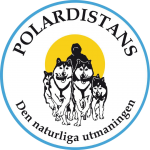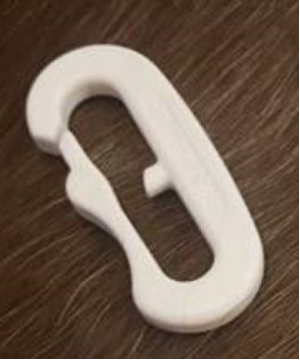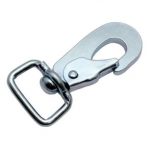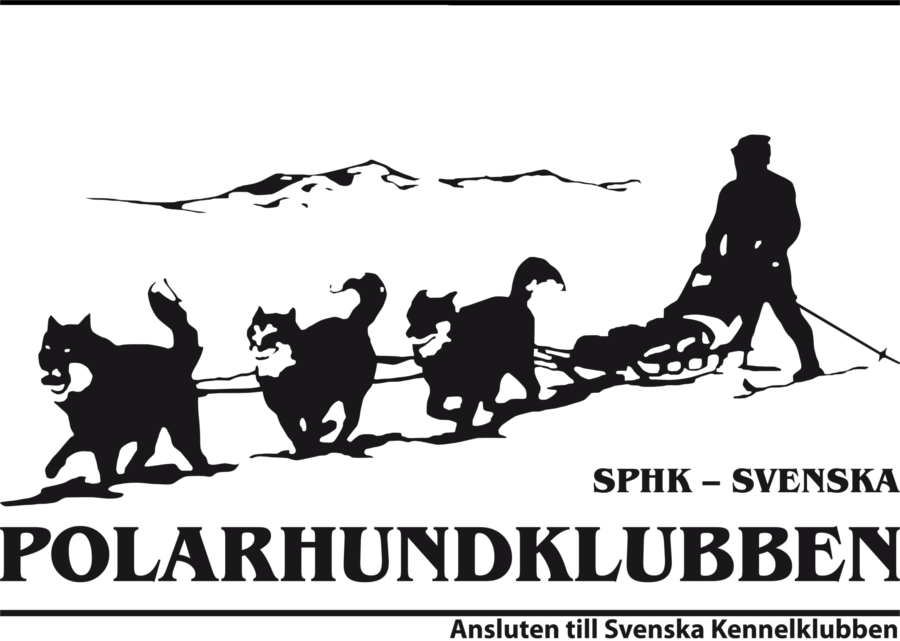
RULES FOR POLARDISTANS 2022
If you want to print the rules as a PDF file – click here.
The race follows the IFSS regulations, International Federation of Sleddog Sports Race Rules as well as the additional rules that applies for Polardistans (see below).
All participants must have read and taken note of Polardistans’ dog care policy.
Polardistans 160 is approximately 160 km and Polardistans 300 is approximately 300 km.
Both competitions are open for the registered purebred polar dogs of the breeds Alaskan malamute, Greenland dog, Samoyed, Siberian husky, Canadian eskimo dog and Lakutskaja laika.
For the first time in Polardistans’ history Polardistans 300 km also welcome all-breed dogs.
Polardistans 300 km is hosting the IFSS/WSA Long Distance World Championship 2022.
Polardistans 160 km is carried through as usual, but without a championship status.
DID-No is required to register your entry at PD300. If you do not have a DID-No please contact your national federation under IFSS/WSA.
DID-No is not required to register your entry at PD160
ADDITIONAL RULES POLARDISTANS
- Categories
a. RNB1: Siberian husky.
b. RNB2: Alaskan malamute, Greenland dog, Samoyed, Canadian eskimo dog and Lakutskaja laika.
c. RNB: merging of RNB1 and RNB2 (nordic classes)
d. OPEN: other dogs than RNB - All dogs starting at PD160 and PD300 must have obtained the age of 18 months on the starting day.
- Men and women participate it the same class.
- Minimum age for the musher is 18 years on race day.
- In nordic style the dogs may run in double file.
- All sleds/pulkas in the nordic classes must have brakes, regardless of size of the team.
- The size of the pulka/sledge must be sufficiently large; that the equipment, which was vacuum compressed at the start, even fits into the pulka/sledge when unpacked
- Metal BGB-hooks1/ are NOT allowed in nome style but can be used in nordic style, but only if they are attached to solid shafts, nowhere else.
- Fixlock 2/ plastic hooks are allowed in all necklines.
- The competition has mass start within the respective class. The classes can be merged in case of too few participants in some classes.
- All RNB dogs must have FCI approved pedigrees. All dogs must be ID marked with microchip. Ear tattoo is not approved. At the registration all original pedigrees and vaccination certificate will be checked for the RNB dogs and vaccinations certificate for all breed dogs.
- Mushers and handler not attending the mandatory musher and handler meeting are not allowed to start. The starting fee will not be returned in this case.
- In connection with the registration in the secretariat ALL RNB teams must submit a correct filled Working Dog Test form and ALL OPEN teams must submit at chiplist. All lists should be filled in on computer.
- N.B! Lack of original FCI approved pedigree for the RNB teams, lack in meeting the vaccination requirements, lack in the mandatory equipment or that musher or handler does not participate in the mandatory meeting means that the team is not allowed to start. The starting fee will not be returned in any of these cases.
1/ 2/


TEAM LEADER
Each nation must appoint a team leader, who is the Polardistans organisation’s communicator and informant to all participants on PD2022 from the same nation.
The team leader must speak English and has to report to the secretariat as soon as possible upon arrival in Särna. The team leader has mandatory presence at the musher- and handler meetings where participants from his/hers nation are present.
CLASSES
Number of dogs at start and finish for each class:
|
Classes |
Number of dogs |
|
|
At start |
At the finish line |
|
|
RNB MD 160 nordic |
Max 4 |
1 |
|
RNB1 MD 160 nome 8 |
Max 8 |
4/5 * |
|
RNB2 MD 160 nome 8 |
Max 8 |
4/5 * |
|
RNB LD 300 nordic |
Max 4 |
1 |
|
RNB1 LD 300 nome 8 |
Max 8 |
5 |
|
RNB1 LD 300 nome 12 |
Max 12 |
7 |
|
RNB2 LD 300 nome 8 |
Max 8 |
5 |
|
OPEN LD 300 nome 12 |
Max 12 |
7 |
|
OPEN LD 300 nome 8 |
Max 8 |
5 |
*/5 or 6 dogs at start, minimum 4 dogs at the finish line
*/7 or 8 dogs at start, minimum 5 dogs at the finish line
MUSHERPASS, INSURANCE AND “COMPETITOR CONSENT FORM”
Swedish participants must have a so-called “green card” and a private liability insurance. In connection with the registrations in the secretariat Non Swedish mushers must be able to provide documentation of a private liability and casualty insurance covering this kind of sporting activity. (The documentation preferable written in english or german).
ALL participants must submit a signed “competitor consent form” in the secretariat upon registration.
TRAIL MARKINGS
The trail goes mainly along the marked snowmobile trails. The trail marking is complemented by race signs with reflective tapes and warnings at road crossings.
SEARCH AND RESCUE
Search and rescue operations will normally be initiated 24 hours after the last contact with a team. Unnecessary stops between the checkpoints should therefore be avoided. If a situation occurs and a search and/or rescue action is needed prior than 24 hours, the decision is made by the race organization together with the Mountain Rescue Team or similar emergency services. Participants shall at all times have enough food and equipment to survive for at least 24 hours – both taking care of themselves and the dogs.
The emergency rations, both for musher and dogs can be used 24 hours after the team left the latest checkpoint. In other words; this means that a musher at any time must ensure that he/she has sufficient amount of food for himself /herself and the dogs when leaving the checkpoint
MANDANTORY EQUIPMENT
The list of the mandatory equipment is available on the website. Dates and times for equipment control are in the program on the website. If the equipment is not complete or not approved by the race judge the team will be banned from starting. Equipment control should be completed prior to the musher/handler meeting. The teams that start in the first starting groups are inspected with priority. Random inspections will also be carried out during the race. The equipment will also be controlled at the finish line.
Mandatory equipment that is lost or broken during the competition can be replaced at checkpoint against a time penalty of one (1) hour. Any replacement or change of equipment must be approved by the race marshal/race judge or checkpoint manager and it is to be noted in the checkpoint files and reported to the secretariat. If mandatory equipment is missing during the random inspections during the race or at the inspection at the finish line the team gets a time penalty of 3 hours.
START and FINISH
Polardistans has mass start in all classes. The start area is located down on the frozen lake at Särna camping. Dates and times for the starts can be found in the program on the website. Classes with few participants may be merged. Starting poles will be drilled into the ice on the starting line; one pole per team. It is very important that each team fastens the starting line as low as possible on the pole, recommended at the ice level. There will be plenty of time to get the teams ready on the starting line between the start of the classes.
There will be a few volunteers with access to a few snow mobile and ATWs available for those teams who needs assistance to get down to the starting area.
The finish line will be up at Särna camping in front of the main building. The latest arrival for finishing within the official time will be Friday the 4th of March at 13.00 o’clock.
REINDEER AREA
The trail goes through reindeer grazing areas. The dogs must therefore be kept under strict control in these areas. Participants are responsible for any damages his/her’s dogs are causing to the reindeers.
VETERINARY HANDBOOK
At the registration every participant will receive a veterinary handbook. This shall be handled to the veterinarian at the checkpoint in connection with the mandatory veterinary checks. A team cannot leave the checkpoint without the veterinary handbook has been signed by a veterinarian.
- No dogs are allowed to be dropped from the competition without a veterinary inspection. All dropped dogs must be noted in the veterinary handbook. At any time a veterinarian can request a re-check before a team is allowed to leave the checkpoint and continue the competition. The veterinarian can even require an extra re-check at the next checkpoint.
- A re-check of the dogs may also be required at the checkpoint for PD160.
- Injuries to dogs shall be reported to the veterinarian and be noted in veterinary handbook. The veterinarian team reports all injuries and dropped dogs to the race organizer.
- It is each participant’s responsibility that the veterinary handbook is signed by the veterinarian at all inspections.
- At the finish line, the veterinary handbook shall be returned to the veterinarian who controls the team.
- Lost veterinary handbook results in disqualification!
DOG TAGS
All dogs starting at the Polardistans should be tagged with a dog tag attached to each dog’s collar. The dog tags are handed out at the vaccination control in the secretariat in connection with the registration
CHECKPOINT
Along the trail is one checkpoint where the teams have to pass through. PD300 passes the checkpoint two (2) times and PD160 once. Water and straw are available for all teams at the checkpoint and it is possible to leave a tired, injured or sick dog at the checkpoint. The musher is responsible that a dropped dog is picked up at the checkpoint by the handler.
The checkpoint is closing at Friday the 4th of March at 04.00. All teams must have left the checkpoint at this time. If a team leaves the checkpoint after the closing time the team will be shut off from the competition. The closing date and time can be extended by the race jury.
If a musher goes into a car/camper/caravan/cottage or similar he/she is not allowed to continue the race.
MANDATORY REST
Polardistans 160 has a 10 minutes mandatory stop at the checkpoint in Öjvassla. A veterinarian will check the team during the stop. If any remarks on any dog/dogs the veterinarian can demand an extended stop or a re-check within the time frame agreed between the veterinarian and the driver.
Polardistans 300 has two (2) mandatory rests: one (1) rest of four (4) hours and one (1) rest of six (6) hours. These two rests have to be taken at the checkpoint in Öjvassla. The two rests cannot not be added together to one rest of 10 hours. The order is four (4) hours rest at the first passing and six (6) hours rest at the second passing at the checkpoint. The rests can of cause at any time be extended if desired.
MUSHER AND HANDLER MEETING
The musher and handler meetings are mandatory for mushers and handlers. The dates and times for the meetings are published in the program on the website.
HANDLER
The handler may help at the start and finish area to take care of the musher’s dogs. At the checkpoint, the handler may only help to lead the team in and out from the checkpoint and help the team to park at the designated pole. The handler may stand guard behind the sledge if the musher is sleeping, but are not in any way allowed to help with the dogs. Only the handler of the team is allowed around the team at the checkpoint area.
When the team is parked at the designated parking pole, the pole has to be marked with the starting number (applies only to PD300). The handler or the musher is responsible to bring the starting number for the parking pole; the number is received at the registration in the secretariat. The team will be parked at the same pole when coming into the checkpoint the second time. This is to minimize the spread of potential infection.
Handlers and mushers may meet within the marked area around the fire. Dropped dogs can be handed over to the handler at this marked area as well. No dogs can be taken out of the race without a veterinarian check!
If a musher does not have a handler, he/she has to notify this upon the registration in the secretariat. The race organizer will instruct the volunteers to pay extra attention and help teams without a handler.
If one person is handling several teams it has to be notified to the secretariat in connection with the registration as well. It is important that the handler has the handler BIB with the right number on when handling the teams to avoid any misunderstandings.
DEPOT AND DEPOT BAGS – applies only to the PD300
The mushers bring their own bags and the handlers are responsible for the bags being available at the right place at the right time at the checkpoint.
The bags must be clearly labelled with the name and the starting number of the musher. The bags may only contain cold or dry dog food (not soaked/wet or heated food and no cooling bags or boxes) and a dog cover /dog wear for each dog together with a blanket. The musher himself/herself has to get the bag from the designated place and return the empty or used bag/bags to the same location. The handler is responsible for removing the empty or used bag/bags –and it also applies if the team drops out of the race. Control of the depot bags will be done at the checkpoint by the race judges.
N.B! Only dogfood, dog covers/dog wears and blankets are allowed in the depot bags
WATER AND STRAW
Water and straw is available at the checkpoint for all teams. The musher has to get the water from the designated area. The water bottles must be returned to the same location as they were picked up as soon as possible. The handler has to collect the straw in accordance to the instruction given by the volunteers, when the team leaves the checkpoint.
BIBS
In connection with the registration in the secretariat the musher receives a BIB with the starting number. The BIB has to worn by the mushers during the entire competition. Even the handler BIB is handled out in the secretariat during the registration, The handler BIB has to be worn by the handlar as soon as he/she in around the team in the start and finish area as well as at the checkpoint.
DOGS IN CARS
A dog that during the race is taken into a car/camper/caravan/cottage or similar is not allowed to continue the race.
HELP
A volunteer and/or a handler may help to guide the team in and out of the checkpoint. A volunteers direct the team to a designated pole for a shorter or a longer stop. Mushers are not allowed to receive any other help during the race other than to control, slow down and keep the team at the checkpoints. Help to get the team moving is not allowed.
In case a pulka/sledge/ski/ski stick is broken, the musher may get help from the handler. The handover of the replacement equipment shall take place at checkpoint unless something else is agreed with the race marshal, race judge or checkpoint manager. The change of equipment must be approved prior to the handover by the race marshal, race judge or checkpoint manger. The musher must repack the sledge/pulka, not taking any help from anyone and then leave the broken sled/sledge/ski/ski stick to the handler.
Otherwise, no help is allowed during the race.
DEAD DOG
If a dog dies during the race, it must be transported to the checkpoint or the finish area. The dog should be carried in the sled and must be covered upon arrival at checkpoint/finish area. Upon arrival the musher shall contact a veterinarian, race marshal, race judge or checkpoint manager. If possible, the musher or his handler, shall inform a veterinarian or the race organizers that a dog has died before the team reaches the checkpoint/finish area. If possible, the dog can be picked up at an agreed place. The musher can continue in the competition if the first check clearly shows that the dog has died of causes other than neglect.
PROTEST
Any protest shall be given in writing on the designated form, no later than one (1) hour after the finish. Protest fee is 300 SEK.
